By Meg Badwey Conger, granddaughter* with memories by Joe Eaton , Grandson*
*Relation to Andy and/or Flora Lehr
My father, Nicholas “Nick” Badwey, married into the Lehr/Rogers family when he wed Julia “Judy” Margaret Lehr on April 14, 1956, in Eureka, KS. While not initially welcomed with open arms, my father’s wit, intelligence, good humor, and willingness to do just about anything for anyone made him a much-loved member of the family. And he loved my mom more than anything in the world, and I’m sure that must have helped him, too.
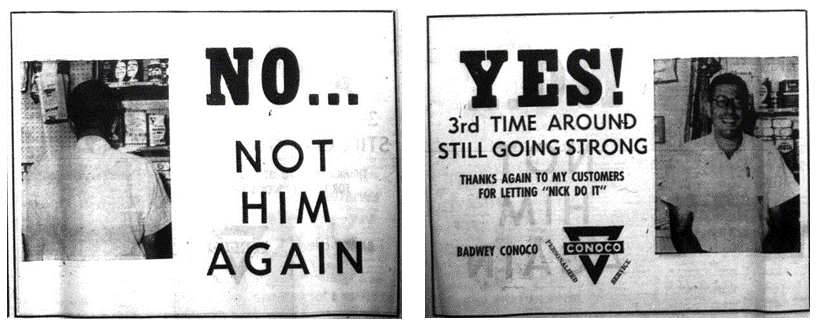
Dad was an incredibly hard worker, and as his first baby was born a little over nine months after their spring wedding, his expanding family nudged him to work even harder to be a good provider, husband, and father. Dad had started out by working in a gas station, then eventually to owning several. Later he owned a bulk oil plant and was a Phillips 66 jobber for decades. He served on boards, was involved with politics, was a friend to Kansas governors, and even served as Chairman of the Board of the Kansas Turnpike Authority for approximately 17 years. He had a Turnpike interchange named for him (and he was even still ALIVE when that happened), and he counted thousands as good friends.
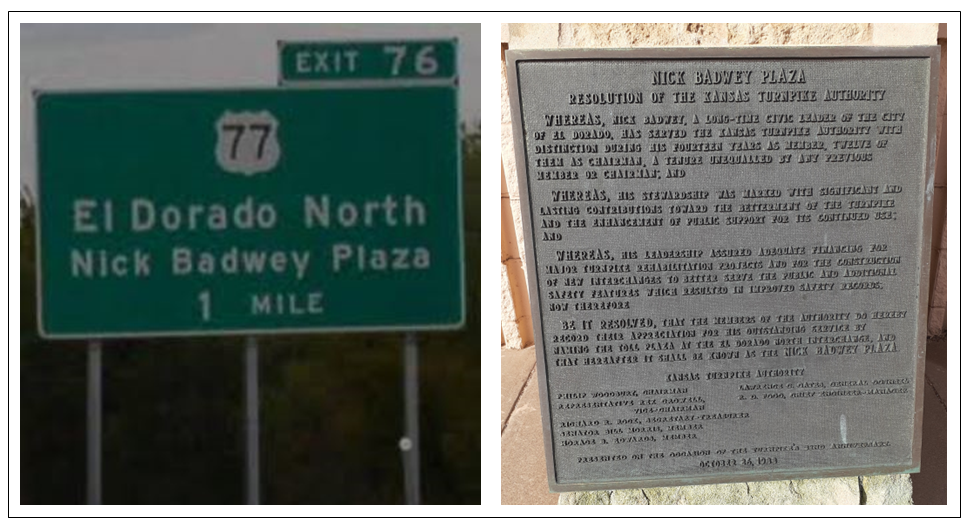
How did a humble gas station attendant, a son of Syrian immigrants, who grew up incredibly poor and spent most of his childhood in an orphanage, grow to become so respected and beloved that more than 1,500 mourners attended his funeral in 1995, some standing in the parking lot and listening to the ceremony over a loudspeaker? I like to think that it was the four-word motto he used to promote his businesses and he also used to live his life: “Let Nick Do It!”
My dad would give the time of day to anyone, sometimes to his detriment. If someone had a story to tell, Dad listened. If someone had a hard-luck story to tell, Dad still listened… and then would do what he could to help that person out. An example of this is the annual “Christmas with Friends” dinner that my dad and his buddies in the Red Devil Chefs group threw every Christmas season. This dinner was a barbecue treat of thanks for the men who resided at the Honor Camp out by Lake El Dorado. These men had served time in prison and the Honor Camp was their last stop before being released back into society. The men were very helpful around El Dorado, beautifying the city by picking-up trash, decorating parks for holidays, performing maintenance tasks, and much more. The Red Devil Chefs, comprised of businessmen and physicians, hosted a large party each year to thank these men for their efforts. Steaks and smoked porkchops, cooked by the Chefs, along with wonderful side dishes were offered, and prayers and speeches of thanks were spoken. The food was amazing… I knew this because sometimes Dad would bring home some leftovers for a treat. The goodwill built between the men at the Honor Camp and the residents of El Dorado was priceless.
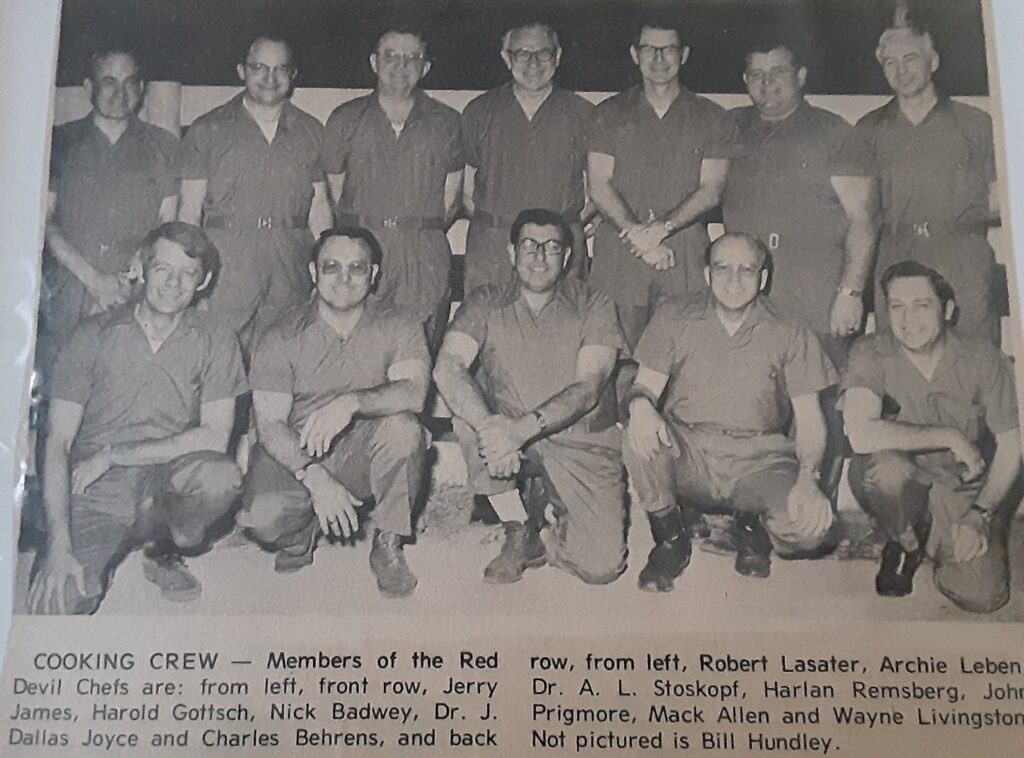
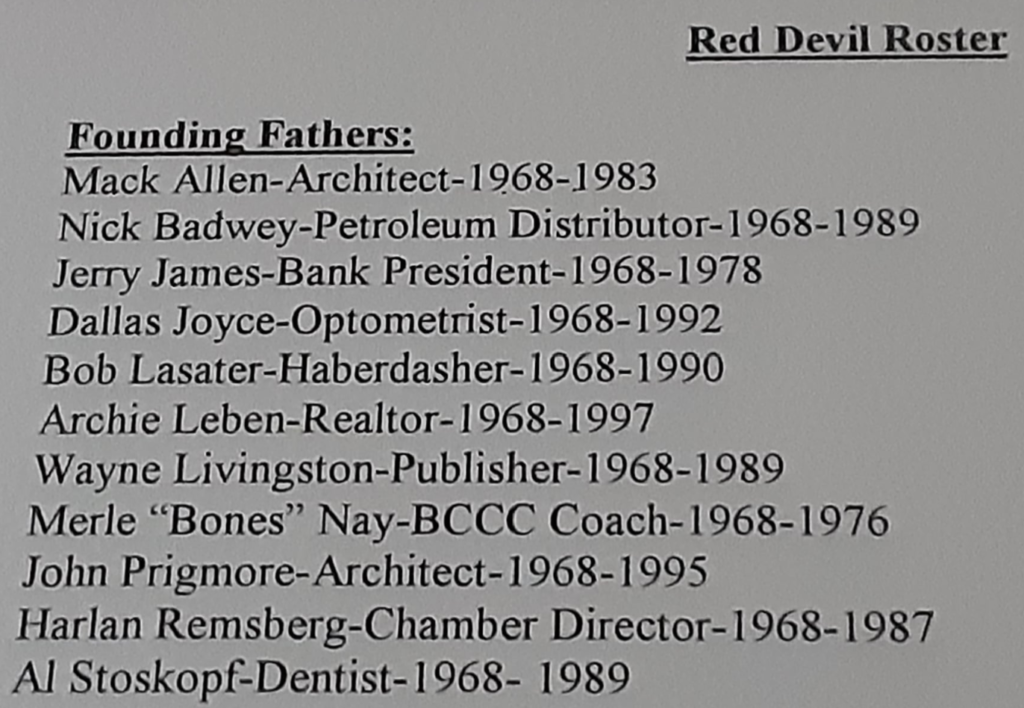
Dad was not known as an easy mark, but he was known for his generous spirit. He donated regularly to his church, he would lend those in need money or help them find a job, sometimes calling in favors from local businessmen and women. My father, who had the nuns of the St. Joseph Home for Boys to help raise him and hadn’t been a recipient of regular kindness himself, never said “no” to someone in need. Sometimes this ended up costing him both financially and in the few times someone tried to take advantage of his generous spirit and friendly nature. But it never stopped him from continuing to give back, whether it was to an individual or an organization.
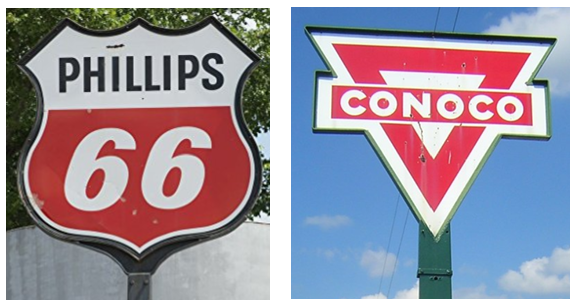
But my cousin, Joe Eaton, who worked for my dad during high school and immediately after, had a unique observation point to witness my dad’s business. Joe has a pretty good memory and he shared with me some great stories about dad that are good examples of his sense of humor, work ethic, and even more reasons why people “Let Nick Do It.”

The Infamous Vacuum Story: In the old days, 1950 and before, station attendants would use a whisk broom to sweep out cards. My dad had joined the modern era and installed a vacuum at the gas pump island at his South Main location. One of the first customers to be offered this new service pulled in, and it was a woman in a nice car. Dad ran out to greet the lady with his usual “May I help you?” to provide his usual stellar service. (In case you didn’t know, Dad could barely hear in one ear. You’ll see why this is important.) The woman asked, “Do you have a restroom?” Dad, with his bad ear and his enthusiasm to use his new vacuum, heard “whisk broom” to which he replied, “Give me a minute and I’ll suck it out for you.” The lady quickly returned to her car and sped off.
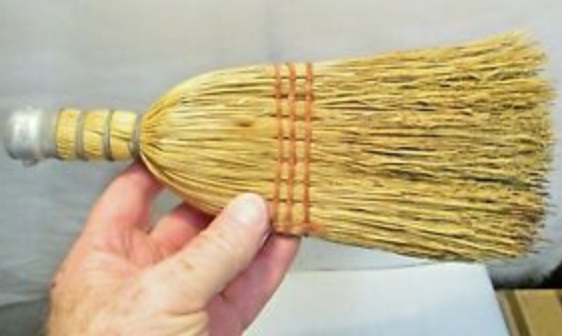
Bill and Bob: Two employees who worked with Dad for years and years were Bill and Bob. Bob was a terrific mechanic, friendly, and loved his Pepsi Cola. He was a bit stocky but could contort himself into strange positions to repair under-dash issues, but he wasn’t the tidiest of mechanics. Bob lacked Bill’s mechanical skills, but no one would work harder to provide great service to customers, or clean a windshield as well, or could clean the lube bays like Bob. Arriving to work each day in a clean, pressed uniform, Bob also had a big smile and, like Bill, was proud of his work. One day, a customer brought his 1964 Chevy Impala in for a wash job. He had just had the whitewalls of his tires colored red (no accounting for taste). Well, no one informed Bob about this custom coloring and he worked his tail off to remove the darn red from those nice white walls. (In Bob’s defense, new tires with white walls usually arrived with a thin protective film to keep them clean, and then the film was removed later.) Bob got that pesky red off those tires, but the customer was not thrilled. I’m not sure what Dad did to make the customer smile again, but I’m sure it was something nice.
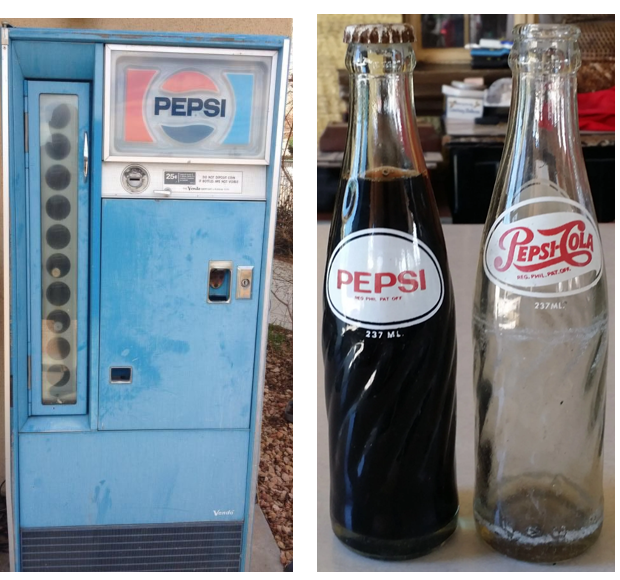
Dad’s generosity was not just for strangers, friends, and customers. He treated my mom as if she were something precious, although he was quick to brag about her personal and physical strength, telling people how she could lift a sofa with one hand. He would do anything and everything for her out of pure love. He also made sure we kids had great childhoods filled with opportunities. I remember as an elementary school kid, I wanted to take viola lessons. I had started piano lessons with the wonderful Mrs. Brazil, (I think all the Badwey kids took lessons from her) but I wanted to branch out. It turns out we had a violin at our house, so that is what I began to play. I later added viola when the opportunity presented itself. Then, in eighth grade, our new orchestra teacher arrived and she was a harpist. She soon approached me about harp lessons and I was thrilled, so I responded “Sure!” when she asked if I wanted lessons. I went home very happy and eager to share my new-found good fortune with Dad and Mom. Dad wanted to know where I would get a harp to practice with. Now, that stumbling block had never occurred to me (I had just turned 13, so I wasn’t at the most thoughtful age). But Dad didn’t waver. He and Mom purchased a harp for me, having faith I would continue my lessons. And in high school, I added bass violin to my repertoire. Dad used to tease me repeatedly, telling friends, “She just wouldn’t play the piccolo so we got her this.” I think Dad was as thrilled as I was when he bought me my first car, a banana-yellow Vega station wagon, so I could haul my harp around. This meant dad could finally sell Mom’s station wagon and buy her the sedan the two of them had been wanting for some time.
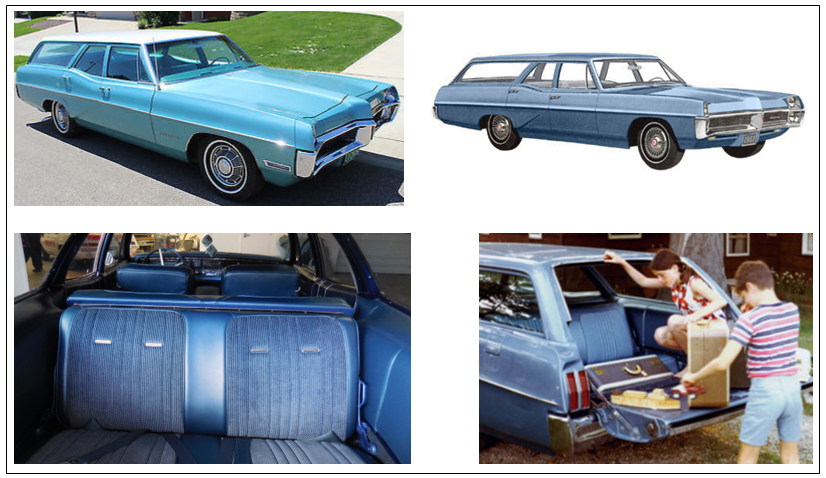
Dad loved entertaining and every year, he would fly fresh oysters up from Louisiana and have a big oyster luncheon, with both raw and smoked oysters. His invitations for this event were pretty coveted. You knew you’d hit pay dirt when the invitation would arrive, featuring an exceedingly clever, rhyming poem, authored by my dad. Men and women alike would crowd to the luncheon and eat those oysters. (I was never tempted to attend.)
He was also accomplished on the harmonica, a feat that is much harder than it sounds. I will never forget the sounds of beautiful songs like “Lara’s Theme” from Dr. Zhivago, “Goodnight Irene” and so many others coming from Dad’s harmonicas. The kids weren’t the only ones with musical talent.

Vacations with his family were another way Dad relaxed, though with five kids in a Pontiac station wagon driving across the country to different National League ballparks must have been a little tense. Remember Dad was a Cub’s fan. Each summer, he planned great vacations for us, and he would load us up, with a big white luggage carrier on top of the car, and off we would head to watch the Cubs play three games somewhere. The trips were always augmented with great activities… Disneyland, boating on Lake Erie, the beach, the Pro Football Hall of Fame, and seeing national parks and landmarks. But the ball games were the main attraction. We’d all sit with programs, keeping box scores and watch the Cubs play, and occasionally win, in various parks across the country. Wrigley Field was Dad’s favorite, and it was while sitting there on the first base line that a foul ball hit by player Popovich (I’ll never forget that name) struck my dad right on the corner of his glasses, cutting the area around his eye and breaking his glasses. First-class treatment by team management followed as we were treated to limo rides to take Dad downtown to get new specs, and I’m pretty sure a lovely meal afterward. While grateful for the replacement glasses, all Dad had wanted to do was watch the rest of the game. Mom did make a successful grab for the foul ball.
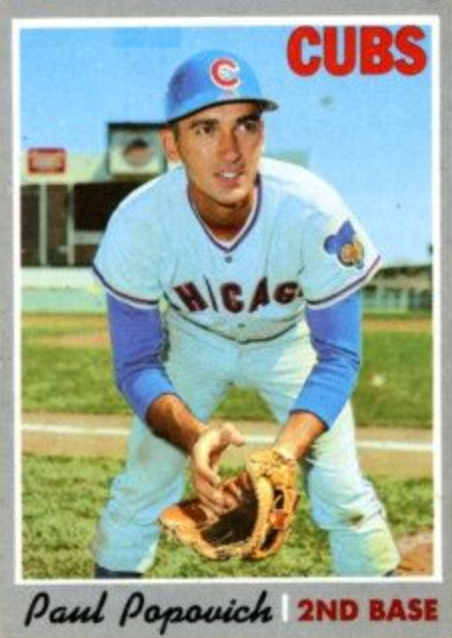
The origin of the message, “Let Nick Do It” is a little cloudy. One theory is that Dad came up with it. Dad was a great writer and a clever poet, so he had good creative talent. Another theory is that his good friend, Dave Clymer, who was the publisher of The El Dorado Times, coined the phrase. Wherever it originated, it was present at Dad’s stations, on his oil trucks, on little pocketknives and other advertising specialty pieces… lots of strategic places. I still have my little Swiss Army knife that said, “Let Nick Do It!” in white letters. The lettering is pretty faded now, but I know it’s there.
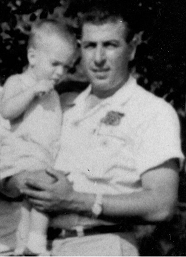
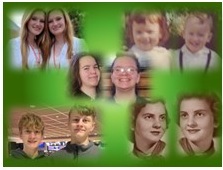
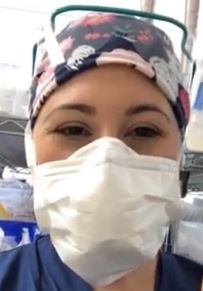
By Roger Eaton, grandson*
*Relation to Andy and/or Flora Lehr
In the late 1960s, Uncle Nick operated a Conoco service station at the corner of West Central Avenue and South Washington Street, in El Dorado, Kansas. In those days, getting gasoline for your car was a much different experience than in the year 2023. The drive had a black hose stretched across it. When you drove across the hose, it caused a bell to ring inside the garage part of the station. That notified the attendants that a customer had arrived.
Within a few seconds, an attendant would be at the driver’s window. The driver, usually my mother, would roll down the window and say, Fill ‘er up.” Few cars had electrically powered windows. They had to be lowered and raised by rotating a crank handle. We knew the attendants, Bill and Bob, and they knew us. After connecting the pump to the fill tube, on the car, they would begin cleaning the windshield. After the windshield and rear window had been cleaned, Bob would open the engine compartment and check the engine oil level. He would also check belts and hoses for wear.
When the tank was full, Bob (or Bill) would disconnect the pump and my mother would pay him. He would get any necessary change from inside the station and return to the dive with the change. The methods for purchasing gas changed over the years and it became a self-serve model. In her 80s and 90s, my mother had never pumped gas. My cousin Julie (Lehr) Utech would always refuel her car.
The service station included a two-bay garage. It had two hydraulic lifts and a high pressure car wash wand. They performed minor car repairs, tune-ups and oil changes. The cars of that time require spark plug changes every year and oil changes twice a year. The exhaust systems need to be replaced every three or four years. At that time, car washes were self-service. Nick’s station offered car washes. They cleaned cars inside and out.
Occasionally, I would need to add air to my bicycle tires. I would walk it to the station and air up my tires. It was five blocks from my house. After getting my air, I’d hang around for a while. I was accustomed to being around my dad’s businesses and understood to “stay out of the way”. If they were washing a car, sometimes, they would ask me to vacuum the carpet and wash the inside of the rear windows.
When he was in high school, my brother Joe joined the crew at the station. He liked cars and had a 1957 Chevy. Later he had a 1965 Chevrolet Impala SS. He kept them well maintained. Not long after graduating from high school, Joe operated a (different) station for Nick.
By Jim Eaton, Jr., grandson*
*Relation to Andy and/or Flora Lehr
Meg, your heartfelt narrative of your father stirred my old memory cells. I spent a substantial amount of time at the Lehr Skelly house during the time your parents were “courting”. I had the opportunity (ease dropping actually) to overhear conversations regarding some of the controversy with that relationship. I am under the impression that much of the animus toward Nick was more a reflection on your mother being the “baby girl” and last daughter at home than it was directed specifically at Nick. The fact that he was not a Catholic was actually a non-issue. To the best of my knowledge, Judy’s only sibling whose spouse was raised in the Catholic faith was Eleanor, Jim’s wife. The claim that it was a whirlwind romance and they did not have time to truly get to know each other, again fails. My mother, Mary Elizabeth Lehr Eaton, hopped on a train to Louisiana to marry my father as he returned from three years in the Pacific Theater. Flora and AJ gave her their complete blessings even though she had never had a formal date with my father!
I distinctly remember his harmonica playing. Few people had such a skill—he predated Bob Dylan and Neil Young. He had a special way (I thought it had a special button) of being able to hit sharps and flats that truly made it sing.
Several months ago, I replied to a Face Book post regarding his first filling station. That is what it was called then because you filled your car there. It has special memories for me because, other than mowing lawns and working for my father, it was my first paid employment. I was hired to keep the station clean. The physical appearance was just as important as was the service, and service was paramount. He was a hard but fair taskmaster. What really left its mark on me was that he did not consider me or my position menial. I always felt that what I did was not only important to the business, but also appreciated (I appreciated it all the more when I received my first paycheck. It all went into my saving for my education. I thought I was making a fortune at $0.50 per hour). And that was the way he treated others.
Now, back to the original issue of his first station. It was farther west on West Central than the Conoco station—I do not recall the exact street. It was a very small building with an A frame roof. It had a single lift outside to raise cars for oil changes and to be lubed. Even though it was small, it was full service, including cleaning windows, checking air in tires, and even sweeping out the interior—FREE. The entire service bay and interior had to be spotless, including the single bathroom. Tires had tubes inserted in them. To fix a flat, the tire had to be dismounted from the car, the tube removed, the offending object removed from the tire, the tube patched reinserted into the tire, inflated, and remounted on the car. The initial price was $0.75. Flats were a common problem then, and many were patched there. As business increased, he moved to the Conoco station that had enclosed service bays. And the rest is history as you described it.